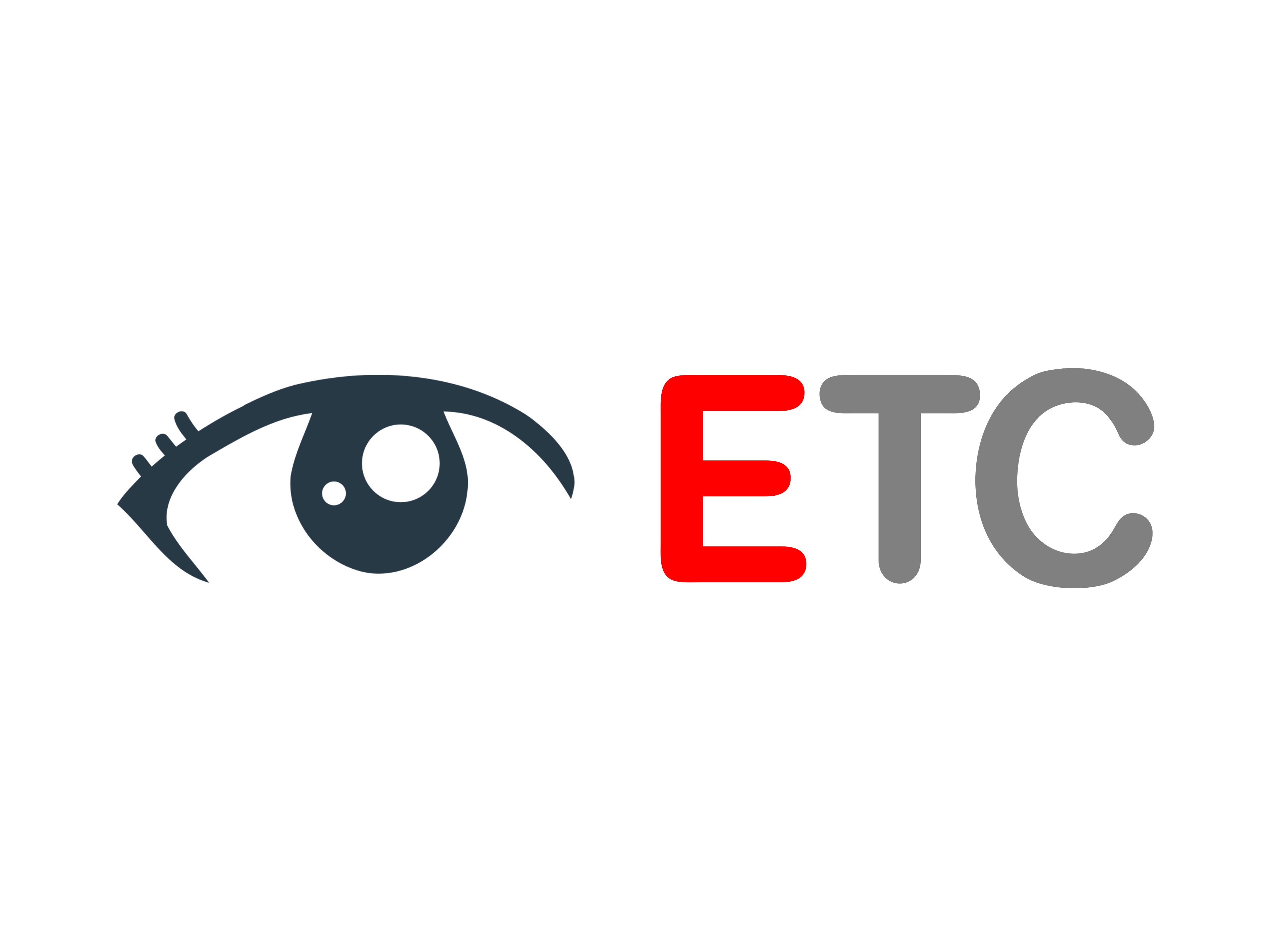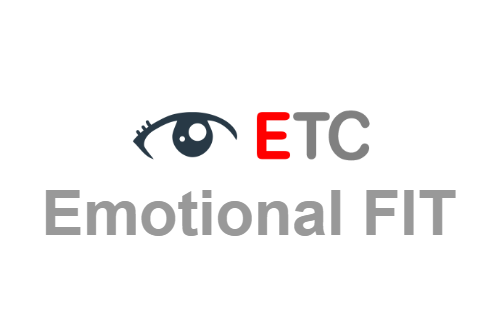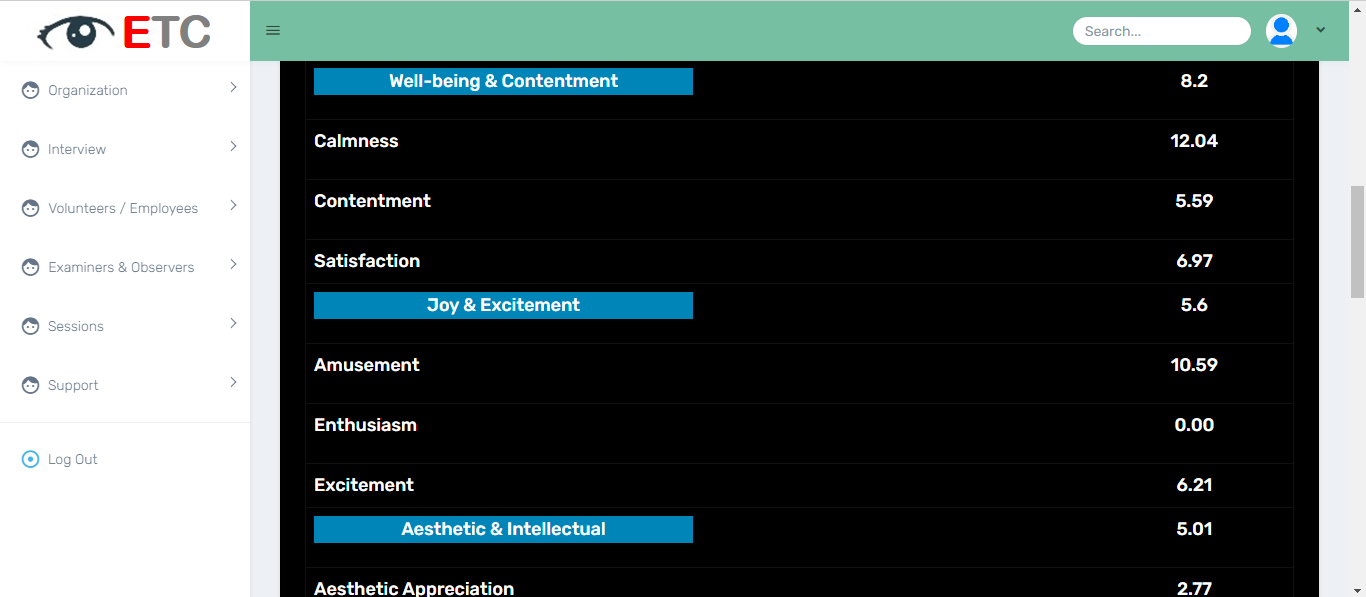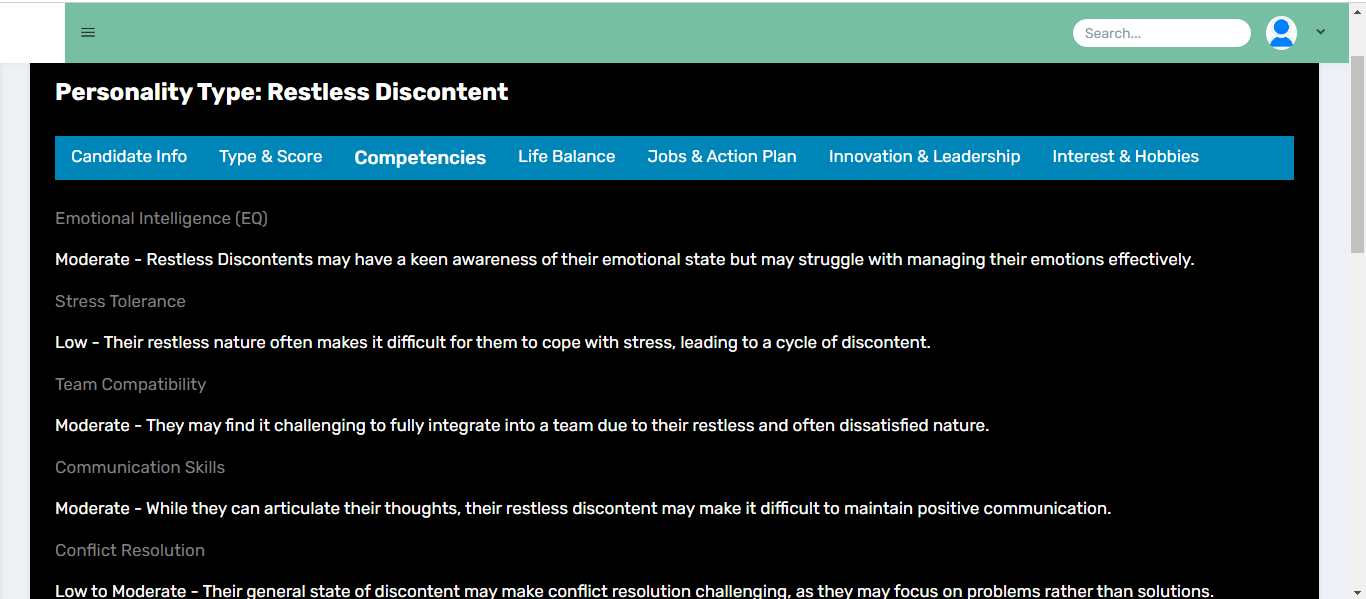It is a comprehensive framework that dives deep into the complex world of human emotions. It breaks down these emotions into 32 distinct stages, organized into nine categories, defining 16 unique Personality types. This framework offers a profound understanding of our emotional landscape, unraveling the intricacies that shape our individuality.
An innovative and transformative project designed to harness the power of emotional analysis to enhance self-awareness, career alignment, and personal growth. At its core, EMOTIONAL FIT seeks to unveil the intricate connections between an individual’s emotional responses and personality, optimizing career choices and personal development.
Key Features and Objectives:
EMOTIONAL FIT delves deep into emotions, extracting 32 distinct emotional stages segmented into the following categories:
– Self-Efficacy
– Social & Relational
– Well-being & Contentment
– Joy & Excitement
– Aesthetic & Intellectual
– Cognitive Engagement
– Social & Relational Negatives
– Self-Doubt & Insecurity
– Discontent & Discomfort
By meticulously assessing emotional responses, this ETC Solutions module provides individuals with profound insights.
Personality Type:
EMOTIONAL FIT unveils an individiual’s unique personality through a meticulous combination of segment scores. Whether you’re an “Optimistic Achiever,” “Empathetic Caregiver,” or any other personality type, this project helps you understand your core competencies, traits, strengths, and potential areas for development.
Interests & Career Optimization:
One of the standout features of EMOTIONAL FIT is its ability to align personality types with optimal interests and job types. By understanding each personality type’s unique strengths and characteristics, individuals can make more informed career choices that resonate with their natural inclinations and abilities.
Life Balance:
EMOTIONAL FIT provides in-depth assessments of the strengths and weaknesses associated with each personality type. Whether you’re looking to leverage your strengths or address potential areas for improvement, this project offers valuable guidance to help you on your personal and professional journey.
Self-Discovery and Growth:
Ultimately, EMOTIONAL FIT is an AI tool for self-discovery and personal growth. It empowers individuals to understand better their emotions, ideal jobs, interests and hobbies, and potential through a proposed action plan.
Sample Report
Positive Emotions (15)
Self-Efficacy 31.3%
Determination: 50.5%
Concentration: 21.8%
Triumph: 21.7%
Social & Relational 24.5%
Admiration: 30.4%
Adoration: 22.2%
Gratitude: 28.8%
Well-being & Contentment 31.8%
Calmness: 27.1%
Contentment: 31.2%
Satisfaction: 37.0%
Joy & Excitement 15.6%
Amusement 7.7%
Enthusiasm 33.8%
Excitement 5.3%
Aesthetic & Intellectual 9.6%
Aesthetic Appreciation 7.5%
Interest 18.8%
Realization 2.5%
Neutral Emotions (3)
Cognitive Engagement 3.5%
Awe 1.1%
Contemplation 8.1%
Entrancement 1.3%
Negative Emotions (14)
Social & Relational Negatives 1.1%
Annoyance: 0.8%
Contempt: 3.0%
Disapproval: 0.5%
Self-Doubt & Insecurity 0.4%
Anxiety 0.2%
Awkwardness 0.7%
Confusion 0.3%
Doubt 0.5%
Embarrassment 0.1%
Shame 0.2%
Discontent & Discomfort 1.9%
Boredom 1.2%
Disappointment 0.4%
Distress 0.1%
Pain 0.1%
Tiredness 0.4%
EMOTIONAL FIT is a beacon of insight and guidance in a world where emotional intelligence and self-awareness play pivotal roles in personal and professional success. It enables individuals to embrace their unique emotional fingerprint, unlock their full potential, and find greater fulfillment in their careers and lives.
Personality Types Based on Emotional Categories:
Positive Emotions Dominant Personalities:
Neutral Emotions Dominant Personalities:
Negative Emotions Dominant Personalities:
Mixed Emotions Personalities:
Description of each of the 32 emotional stages:
Positive Emotions:
-
Determination: A firm resolve or firmness of purpose. The emotional drive pushes individuals to persevere through challenges and obstacles to achieve their goals.
-
Concentration: The mental focus or attention directed towards a specific task or activity. It involves the ability to sustain attention and resist distractions.
-
Triumph: A feeling of joy or exultation due to a significant achievement or victory. It often follows overcoming significant challenges or obstacles.
-
Admiration: A feeling of respect and warm approval towards someone or something. It often involves recognizing and appreciating the qualities or achievements of others.
-
Adoration: An intense feeling of love and admiration for someone or something. It often involves a deep sense of reverence and emotional attachment.
-
Gratitude: A feeling of thankfulness and appreciation, often for something received or for someone’s kindness.
-
Calmness: A state of peace and tranquility, free from agitation or excitement. It involves a serene state of mind.
-
Contentment: A state of satisfaction and happiness with one’s situation or what one has.
-
Satisfaction: The feeling of pleasure or fulfillment that comes from achieving something or having one’s needs met.
-
Amusement: A state of enjoyment and lighthearted pleasure, often accompanied by laughter or smiles.
-
Enthusiasm: A feeling of energetic interest in a particular subject or activity and an eagerness to be involved.
-
Excitement: A feeling of great enthusiasm and eagerness, often accompanied by heightened energy and anticipation.
-
Aesthetic Appreciation: A deep admiration for beauty, art, or aesthetically pleasing experiences. It involves recognizing and valuing the beauty in objects, nature, or art.
-
Interest: A feeling of wanting to know or learn about something or someone. It involves curiosity and attention.
-
Realization: The moment of understanding or becoming aware of something. It involves the sudden clarity or comprehension of a situation.
Neutral Emotions:
-
Awe: A feeling of reverential respect mixed with fear or wonder, often inspired by something majestic or powerful.
-
Contemplation: Deep reflective thought or consideration, often about fundamental aspects of life or one’s beliefs.
-
Entrancement: A state of being captivated or deeply engrossed in something, often leading to a sense of wonder or admiration.
Negative Emotions:
-
Annoyance: A feeling of irritation or slight anger about something.
-
Contempt: A feeling of disdain or scorn towards someone or something considered inferior or unworthy.
-
Disapproval: A feeling of not approving of someone or something, often because of perceived faults or mistakes.
-
Anxiety: A feeling of worry, nervousness, or unease about something with an uncertain outcome.
-
Awkwardness: A feeling of embarrassment or discomfort in social situations or when faced with unfamiliar tasks.
-
Confusion: A state of being bewildered or unclear in one’s mind about something.
-
Doubt: A feeling of uncertainty or lack of conviction about something.
-
Embarrassment: A feeling of self-consciousness, shame, or awkwardness, often due to a socially uncomfortable situation.
-
Shame: A painful feeling of humiliation or distress caused by the consciousness of wrong or foolish behavior.
-
Boredom is feeling disinterested or unengaged with one’s current activity or surroundings.
-
Disappointment: The feeling of sadness or displeasure caused by the non-fulfillment of one’s hopes or expectations.
-
Distress: Extreme anxiety, sorrow, or pain.
-
Pain: A physical or emotional suffering or discomfort caused by illness or injury.
-
Tiredness: A state of needing rest or sleep, often accompanied by a lack of energy and motivation.
Scientific backing into ETC “Emotional FIT” framework:
1. Emotional Categories and Personality Types Scientific Backing
Psychological theories include the Big Five personality traits or Carl Jung’s theory of psychological types. These theories have been extensively researched and support categorizing emotions and personality types.
Example
“The Positive Emotions category in Emotional FIT aligns closely with the ‘Extraversion’ trait in the Big Five Personality Traits. Positive emotions, assertiveness, and sociability characterize extraversion. Numerous studies have shown that extraversion is a stable and heritable personality trait, thereby supporting the validity of Emotional FIT’s Positive Emotions category.”
2. Emotional Intelligence
Scientific Backing
Daniel Goleman’s work on Emotional Intelligence is widely recognized. His framework includes self-awareness, self-regulation, motivation, empathy, and social skills, which can be related to the Emotional FIT project.
Example
“Emotional FIT aims to enhance self-awareness and emotional regulation, key components of Daniel Goleman’s Emotional Intelligence framework. Goleman’s research has shown that emotional intelligence is as important as IQ for career success, leadership, and personal well-being.”
3. Career Alignment
Scientific Backing
Holland’s Theory of Career Choice is a well-established theory that can be used to support the idea that personality types are linked to career choices.
Example
“Holland’s Theory of Career Choice posits that people seek careers that align with their personality types. Emotional FIT’s feature of aligning personality types with optimal interests and job types is supported by Holland’s extensive research, which has been validated across diverse populations.”
4. Self-awareness and Personal Growth
Scientific Backing
Deci and Ryan’s Self-Determination Theory (SDT) emphasizes the role of autonomy, competence, and relatedness in personal growth and well-being.
Example
“Self-determination theory suggests that self-awareness and autonomy are crucial for personal growth and intrinsic motivation. Emotional FIT’s focus on self-discovery aligns with the principles of SDT, which has been supported by empirical studies in various life domains, including education and work.”
5. Emotional Stages and Mental Health
Scientific Backing
Research on emotional regulation and its link to mental health can be cited to emphasize the importance of understanding one’s emotional landscape.
Example
“Multiple studies have shown that poor emotional regulation is linked to mental health issues like depression and anxiety. Emotional FIT’s meticulous assessment of emotional responses provides valuable insights that can contribute to better emotional regulation and mental health.”
6. AI and Emotional Analysis
Scientific Backing
Numerous research papers and studies have successfully linked the use of AI for emotional or psychological analysis.
Example
“Recent advancements in AI, such as natural language processing and facial recognition, have enabled more accurate emotional analysis. ETC-AI have support studies like “El lenguaje de la Tecnología: Cómo aprovechar al máximo la comunicación no verbal en la red” have shown the effectiveness of AI in assessing emotional states, thereby supporting Emotional FIT’s use of AI for emotional analysis.”
7. Compatibility between Personality Types
Scientific Backing
Interpersonal theories like the Social Exchange Theory can be cited to explain why certain personality types are more compatible.
Example
“Social Exchange Theory suggests that relationships are formed and maintained based on mutual benefit and cost assessment. Emotional FIT’s compatibility analysis between different personality types can be seen as an extension of this theory, which has been empirically supported in personal and professional relationships.”
I hope this broader explanation helps! Would you like to go into even more detail on these points?
Download Emotional FIT Matrix – Excel File





